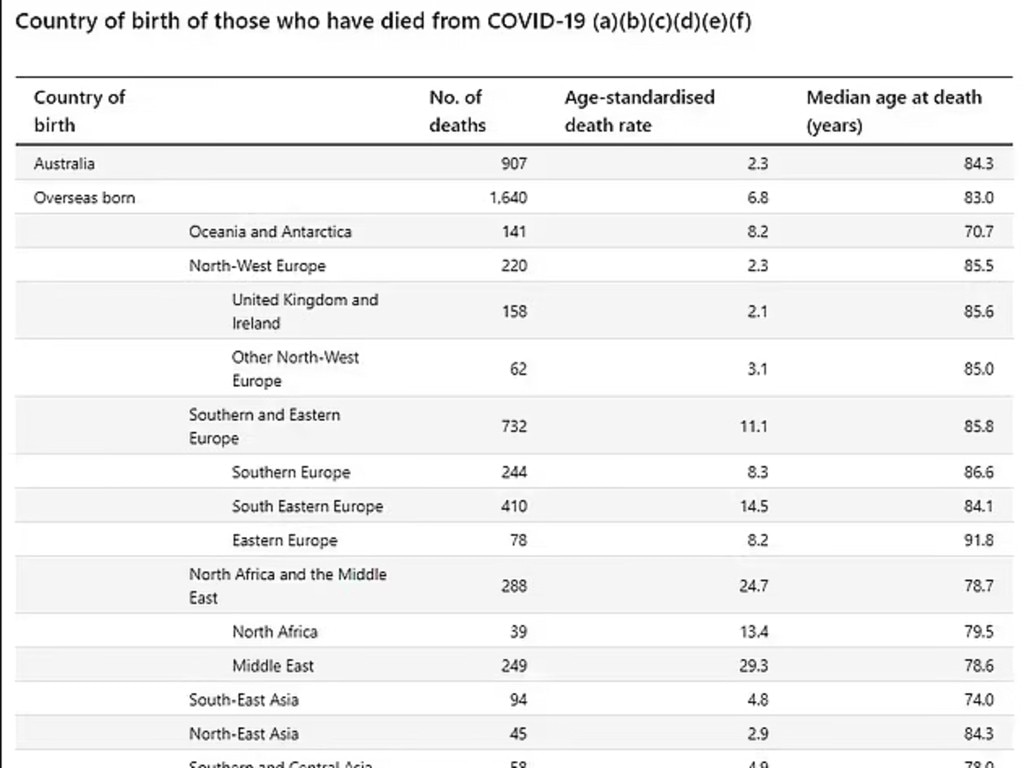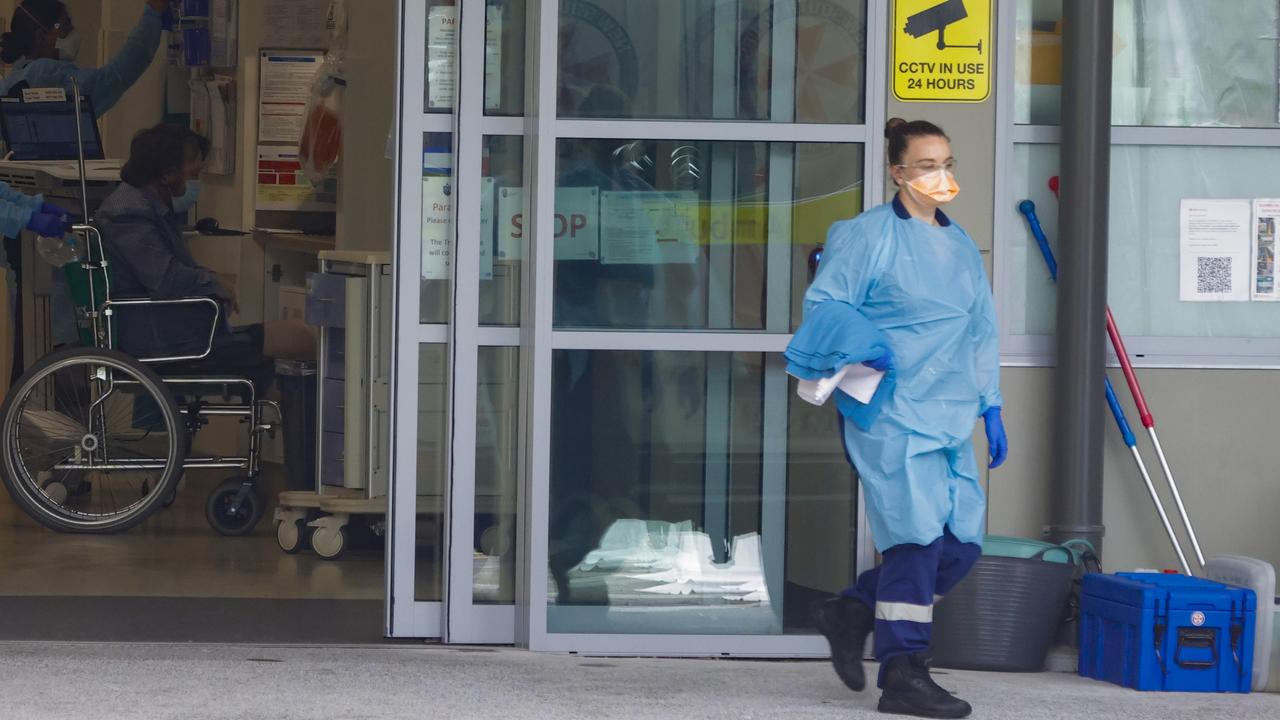ABS statistics reveal group 12 times more likely to die from Covid-19
New data has given a revealing insight into the nation’s Covid-19 deaths, showing that one group of Australians were 12 times more likely to die.
Data from the Australian Bureau of Statistics (ABS) has given a revealing insight into the nation’s Covid-19 deaths, showing that one group of Australians were 12 times more likely to die from the virus than others.
The statistics, released on Tuesday, found that gender, nationality and socio-economic standing played a role, as did underlying health conditions.
Of the 2639 Covid-related deaths officially registered with the ABS between March 2020 and January 31 this year, 1604 were born overseas – a death rate three times higher than those born in Australia (6.8 per 100,000 compared to 2.3).
Deakin University epidemiologist Catherine Bennett said the fact that Middle Eastern immigrants suffered 29.3 deaths per 100,000 people – making them 12 times more likely to die than someone born in Australia – revealed the wider picture of infection rates through the population, which saw cultural reasons affect the virus’ spread.
“This is where we’ve tended to have the epicentres,” Professor Bennett told the Daily Mail.
Stream the latest news on COVID-19 with Flash. Stream 25+ global & local news channels. New to Flash? Try 14 days free now>

“Often we have multi-generational households, or where people share food on a daily basis.
“There’s a lot more connection sometimes between families depending on their cultural backgrounds, and families that particularly mix across generations.
“Someone born in the Middle East has the same chance of dying from the illness – but they have a greater chance of getting infected.”
Women from a low socio-economic background were four times more likely to die from the virus than “rich” men and almost five times more likely to die than “rich women”.
Prof Bennett said this finding was also not surprising – with wealthier parts of society having greater access to options that could shield them from disease, including being able to isolate without financial concern while infected.
Rich families often have their children move out earlier and see their grandchildren less – creating fewer opportunities for infection – or have bigger homes that allow for easier isolation protocols when someone in the household is infected, she explained, therefore protecting the rest of the family.
The statistics also showed there were underlying health issues involved in 92 per cent of the deaths – ranging from pneumonia and kidney infection to chronic heart illnesses – exposing “the overblown scare campaign we’ve witnessed”, 2GB host Ben Fordham said on Wednesday.

During the same period, 100,000 Australians died from cancer, 32,000 from heart disease, 30,000 from Alzheimers and dementia, and 10,000 from diabetes. The Covid-19 deaths, meanwhile, made up only 1 per cent of all fatalities nationwide.
Fordham said the data had made him “feel somewhat vindicated … because we’ve done our best to call for calm during the pandemic and we’ve also been warning about how this has been overhyped”.
“We’ve been urging our political leaders to stop ignoring the hidden consequences of lockdowns. Because in a bid to keep us safe – and we know that hearts were in the right places – people were suffering in other ways,” he said.
“We know Covid-19 is serious, but it doesn’t warrant the fear campaign that we’ve been seeing … I want to be clear: every death is tragic. We are not disrespecting anyone, but we know that death is a part of life.”
While Fordham said that he was “not playing down the situation” or “ignoring the grief of families”, “these records expose the overblown scare campaign we’ve witnessed”.
“Ninety-two per cent had other underlying health issues – an average of three [underlying health issues] per person … It wasn’t Covid that claimed their lives,” he added.

The fact that more than 99 per cent of deaths since Covid-19 arrived on Aussie shores weren’t caused by the virus also demonstrated a “missed opportunity” in the government’s health advice.
Fordham pointed to a recent study published by The Lancet that showed in the US, the 16 states with obesity rates of higher than 35 per cent had some of the world’s highest Covid-19 death rates.
“We asked the question: Why aren’t we telling people to get healthy? Why aren’t we warning people that one of the biggest risk factors is carrying around too much weight?” Fordham said.
“Were we worried about fat-shaming? Because every day we were being told about the health advice, but the most important health advice should’ve been the healthier you are, the greater your chance of surviving coronavirus.”






